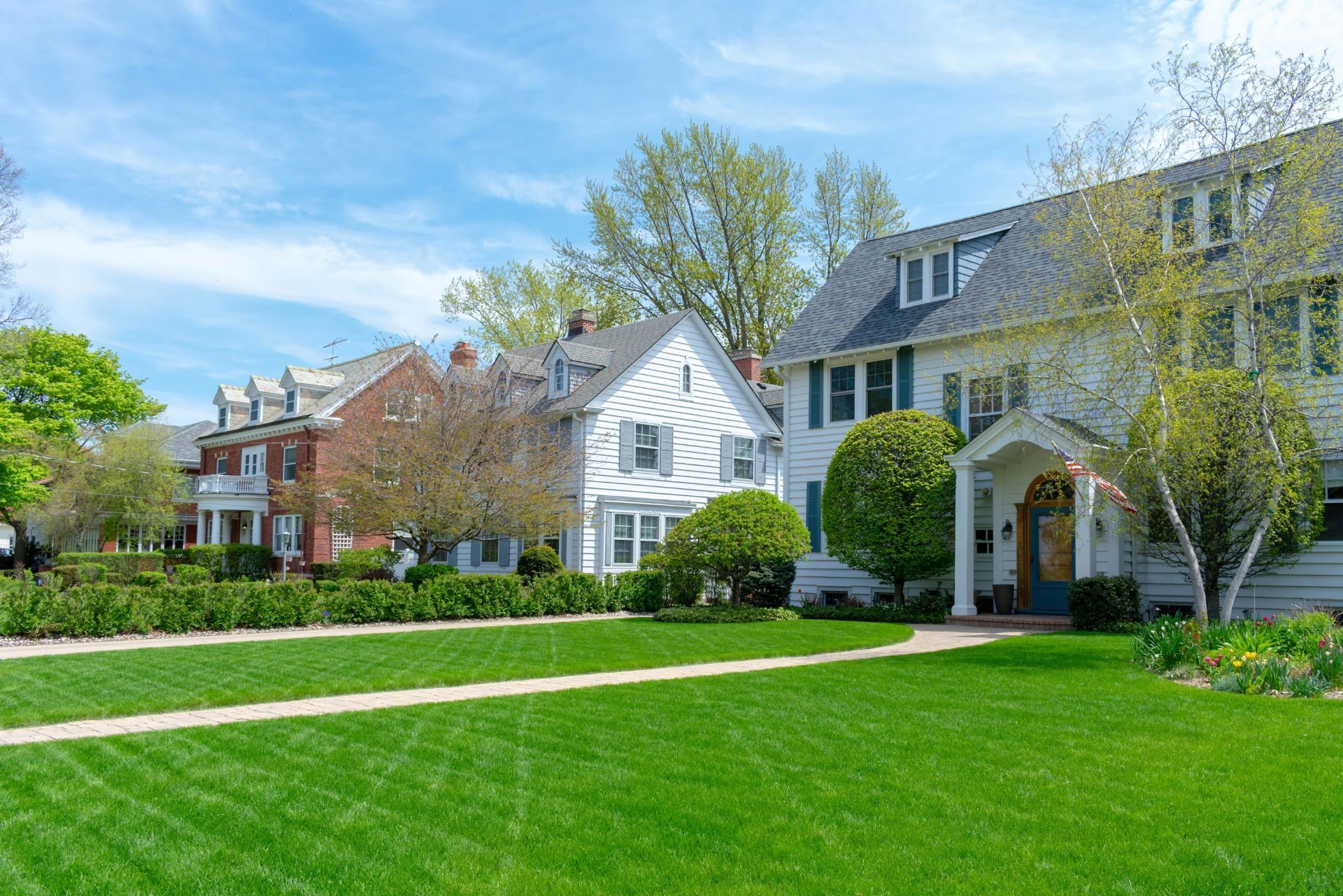Sunset, SC Home Insurance

9:00am - 5:00pm Mon-Fri
Will Reply in 15min*
Index
Why Home Insurance is More Crucial Than Ever in Sunset, SC
Rising Premiums and What They Mean for Sunset Homeowners
Policy Cancellations and Insurer Withdrawals: A Growing Concern
The Rising Number of Uninsured Homeowners: What It Means for Sunset
How Climate Change is Shaping Home Insurance in Sunset
Contact Us
Phone
864-626-6181
service@southerninsured.com
Location
5 Century Drive Suite 130 Greenville, SC 29607
810 Dutch Square Boulevard, Suite 123 Columbia, SC 29210
Homeowners in Sunset, South Carolina, face a rapidly evolving home insurance landscape. Rising premiums, increasing policy cancellations, and the growing impact of climate change are reshaping how residents protect their most valuable asset—their home. Understanding these changes and how they affect coverage options is essential for anyone living in or moving to Sunset.
With recent studies showing a significant jump in uninsured homeowners nationwide and insurers tightening their underwriting standards, navigating the home insurance market can feel overwhelming. This article breaks down the key factors influencing home insurance in Sunset, SC, and offers practical insights to help homeowners make informed decisions. For a comprehensive overview of the challenges facing
homeowners insurance today,
this report highlights the rising trend of uninsured properties across the country.
Why Home Insurance is More Crucial Than Ever in Sunset, SC
Sunset’s geographic location subjects it to a variety of risks including hurricanes, flooding, and severe storms. These natural hazards have become more frequent and intense due to climate change, increasing the likelihood of costly property damage. Homeowners insurance provides a financial safety net that can prevent devastating out-of-pocket expenses following such events.
However, the insurance industry is facing mounting challenges. According to former California insurance commissioner Dave Jones, “There’s a very real impact associated with climate change, which is landing on their balance sheets.” This reality has led insurers to reassess risk and adjust their pricing models accordingly, often resulting in higher premiums and stricter policy terms for homeowners in vulnerable areas like Sunset.
Given these factors, securing adequate home insurance coverage is not just advisable—it’s essential for protecting your investment and peace of mind.
In addition to natural disasters, homeowners in Sunset must also consider the potential for theft and vandalism, which can occur even in seemingly safe neighborhoods. The emotional toll of experiencing a break-in can be just as significant as the financial ramifications. Homeowners insurance often covers personal property loss and liability, providing a crucial layer of protection against such unfortunate events. This means that in addition to safeguarding your home from environmental threats, a comprehensive policy can also help you recover from unexpected incidents that could disrupt your life.
Moreover, as the community of Sunset continues to grow and evolve, so too do the risks associated with urban development. Increased population density can lead to more traffic, which in turn raises the likelihood of accidents and property damage. Homeowners insurance can help mitigate these risks by offering coverage for liability claims resulting from accidents that may occur on your property. Understanding the nuances of your insurance policy and ensuring it aligns with the unique challenges posed by your surroundings is vital for every homeowner in this picturesque coastal town.
Rising Premiums and What They Mean for Sunset Homeowners
Home insurance premiums have been climbing steadily in recent years. A study by the National Bureau of Economic Research found that between 2020 and 2023, the average cost to insure a home increased by 15%, even after adjusting for inflation. This trend is reflected in Sunset, where insurers are recalibrating their risk exposure amid increasing claims and losses.
Philip Mulder, assistant professor at the University of Wisconsin-Madison, explains, “Homeowners insurance is becoming more expensive, even as it becomes harder to find a reliable policy.” This means that while premiums rise, some insurers are also withdrawing from high-risk markets or imposing coverage restrictions, further limiting options for homeowners.
For Sunset residents, this could translate into higher out-of-pocket costs or difficulty securing coverage that meets their needs. Shopping around and comparing policies from multiple providers is more important than ever to find the best balance between price and protection.
Moreover, the factors contributing to these rising premiums are multifaceted. Climate change, for instance, has led to an increase in natural disasters, such as wildfires and floods, which in turn raises the likelihood of claims. Insurers are increasingly factoring in these environmental risks when determining policy rates. Additionally, the cost of materials and labor for repairs has surged, further straining insurance companies and prompting them to adjust their pricing structures. Homeowners in Sunset may find it beneficial to invest in risk mitigation strategies, such as installing storm-resistant windows or upgrading their roofs, which could potentially lower their premiums.
As the insurance landscape continues to evolve, homeowners in Sunset should also be aware of the importance of understanding their policy details. Many policies come with exclusions or limitations that can catch homeowners off guard when they need to file a claim. Engaging with an insurance agent to clarify coverage specifics and exploring options for additional riders can provide a safety net against unexpected expenses. In this climate of rising costs and shrinking options, being proactive and informed is essential for protecting one’s home and financial well-being.

Policy Cancellations and Insurer Withdrawals: A Growing Concern
The home insurance market has seen a notable increase in policy cancellations initiated by insurers. Between 2020 and 2023, the rate of policyholders dropped by their insurer doubled from 0.5% to 1% annually, affecting an additional 423,000 homeowners nationwide. This trend is not isolated and has implications for homeowners in Sunset as well.
In Florida, for example, nearly a dozen property insurers liquidated in 2023, with others like Farmers Insurance pulling out or restricting coverage. While South Carolina has not experienced the same scale of insurer exits, these developments signal a tightening market that could eventually impact Sunset homeowners.
Homeowners should be proactive in maintaining communication with their insurers and exploring alternative coverage options if their current policy is at risk of cancellation. Understanding the terms and conditions that might trigger a cancellation can also help avoid unexpected loss of coverage.
Moreover, the reasons behind these cancellations often stem from a combination of rising claims costs, increased natural disasters, and regulatory challenges that make it difficult for insurers to remain profitable. For instance, the frequency and severity of hurricanes and wildfires have led to significant losses for many companies, prompting them to reassess their risk exposure and adjust their coverage offerings accordingly. Homeowners in areas prone to such events may find themselves particularly vulnerable, as insurers become more selective about the properties they are willing to insure.
Additionally, the landscape of home insurance is evolving, with technology playing a crucial role in how policies are underwritten and managed. Insurers are increasingly utilizing data analytics and artificial intelligence to assess risks more accurately, which can lead to more tailored policies but also stricter underwriting criteria. Homeowners should consider investing in risk mitigation measures, such as installing storm shutters or upgrading their roofs, as these improvements may not only enhance their safety but also make them more attractive to insurers. As the market continues to shift, staying informed and adaptable will be essential for homeowners looking to secure their coverage.
For more on insurer market challenges and withdrawals, see this
industry report.
The Rising Number of Uninsured Homeowners: What It Means for Sunset
One of the most alarming trends in the home insurance sector is the growing number of uninsured homeowners. In 2022, 12% of homeowners nationwide were uninsured, more than double the 5% reported in 2019. This increase represents millions of properties left vulnerable to financial loss.
Approximately 6 million homeowners, or 7.4% of all homeowners, have chosen to forgo insurance, leaving about $1.6 trillion worth of property unprotected. While some may opt out due to cost concerns, others may struggle to find affordable coverage amid rising premiums and insurer pullbacks.
For Sunset residents, going uninsured carries significant risks. Natural disasters or accidents can result in catastrophic expenses that could jeopardize financial stability. It’s crucial to weigh the cost of insurance against the potential cost of uninsured losses.
Many homeowners may not fully grasp the implications of being uninsured until it is too late. For instance, in regions prone to wildfires or flooding, the absence of insurance can lead to devastating financial repercussions. Homeowners who experience a loss without coverage may find themselves facing not only the cost of repairs but also the burden of mortgage payments on properties that are no longer livable. This situation can lead to a cycle of debt and financial instability that is hard to escape.
Moreover, the trend of rising uninsured homeowners is not just a local issue; it reflects broader economic challenges affecting many communities. Factors such as stagnant wages, increased living costs, and the lingering effects of the pandemic have made it difficult for many to prioritize home insurance. As a result, local governments and community organizations may need to step in to provide resources and education about the importance of maintaining adequate coverage. Programs aimed at assisting low-income families with insurance costs could be vital in reversing this troubling trend.
More details on this trend can be found in this
analysis of uninsured homeowners.
How Climate Change is Shaping Home Insurance in Sunset
Climate change is no longer a distant threat—it is actively reshaping the home insurance industry. Increased frequency and severity of extreme weather events such as hurricanes, floods, and wildfires are driving up claims and losses for insurers. This, in turn, leads to higher premiums and reduced coverage availability.
Sunset’s coastal proximity makes it especially susceptible to these risks. Insurers factor in climate-related risks when underwriting policies, often resulting in higher costs or exclusions for certain types of damage. This means homeowners must carefully review their policies to understand what is covered and consider additional protections like flood insurance if necessary.
Staying informed about climate impacts and advocating for resilient building practices can help mitigate risks and potentially influence insurance costs over time. Furthermore, local governments and communities are increasingly recognizing the importance of sustainable development and disaster preparedness. Initiatives such as creating green spaces, enhancing drainage systems, and implementing stricter building codes are becoming essential components of urban planning. These measures not only protect residents but can also lead to lower insurance premiums by reducing the overall risk profile of the area.
In addition, technology is playing a pivotal role in the evolution of home insurance in response to climate change. Insurers are leveraging data analytics and modeling to better predict risks associated with extreme weather. This allows them to tailor policies more effectively and offer incentives for homeowners who adopt risk-reducing measures, such as installing storm-resistant windows or elevating homes in flood-prone areas. As awareness of climate change continues to grow, the insurance landscape is likely to evolve further, prompting homeowners to be proactive in safeguarding their properties while navigating the complexities of coverage options.
Tips for Navigating the Sunset Home Insurance Market
Given the complexities of the current home insurance environment, Sunset homeowners should adopt a strategic approach to securing coverage:
- Shop Around: Compare quotes from multiple insurers to find the best coverage and rates.
- Understand Your Policy: Read the fine print carefully to know what is covered, excluded, and any conditions that could affect claims.
- Consider Risk Mitigation: Implement home improvements such as storm shutters, reinforced roofing, or updated electrical systems to reduce risk and potentially lower premiums.
- Maintain Good Communication: Keep your insurer informed about any changes to your property and promptly address any concerns to avoid cancellations.
- Explore Additional Coverage: Depending on your risk profile, consider endorsements or separate policies for flood, earthquake, or other hazards not covered by standard policies.
By staying proactive and informed, Sunset homeowners can better navigate the challenges of the current insurance market and safeguard their homes effectively. Additionally, it’s essential to stay updated on local regulations and changes in the insurance landscape that may impact coverage options. For instance, recent shifts in climate patterns have led some insurers to adjust their policies and pricing structures, particularly in areas prone to natural disasters. Homeowners should regularly review their insurance needs and adjust their coverage accordingly to ensure they are not underinsured in the face of evolving risks.
Moreover, engaging with local community groups or online forums can provide valuable insights into the experiences of other homeowners in Sunset. These platforms often share tips on which insurers offer the best customer service, claims processes, and overall satisfaction. Networking with neighbors can also reveal common concerns or challenges faced in the area, enabling homeowners to advocate for better insurance options collectively. By fostering a sense of community awareness and support, Sunset residents can enhance their understanding of the insurance market and make more informed decisions regarding their home coverage.

Conclusion: Protecting Your Home in an Uncertain Market
Home insurance in Sunset, SC, is undergoing significant changes driven by rising costs, insurer market shifts, and the growing impact of climate change. With premiums increasing by an average of 15% nationally between 2020 and 2023 and more homeowners facing policy cancellations, securing reliable and affordable coverage is more challenging than ever.
Despite these hurdles, maintaining adequate home insurance remains critical for protecting your property and financial future. Staying informed about market trends, understanding your policy, and actively managing risk can help Sunset homeowners navigate this evolving landscape.
For further insights into the challenges facing homeowners insurance and strategies to cope, this
expert testimony offers valuable perspectives on soaring property insurance costs and market dynamics.







